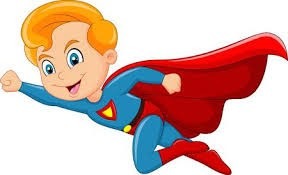Parshas Matos-Masei
I Can Read Your Mind!
“We have therefore brought an offering for Hashem Any man who found a gold article—an anklet or a bracelet, a ring, earring or clasp [has dedicated it for Hashem] to atone for ourselves before Hashem.” (Bamidbar 31:50)
I remember reading the following story: There was excitement in the small village when they heard that the king would be visiting them in a week. In preparation for the king’s visit the town elders decided to fill a giant barrel with wine and present it to the king upon his arrival. Where were they going to get so much wine to fill the giant barrel? They decided that each family of the town would bring one bottle filled with wine and pour it into the giant barrel. This way the barrel would fill with wine. They placed a giant barrel in the center of the town with a ladder reaching to the top. Every day people lined up to pour their bottle of wine into the barrel. The day finally arrived, and the king visited the town. The people were so excited to present the king with this wonderful gift. The king was shown the barrel and was given a kingly goblet. They filled his goblet with wine from the giant barrel. The townspeople were shocked by the look on the king’s face as he drank the wine. The king was obviously very unhappy. When he was asked why he was so unhappy he said that his goblet was filled with water! It turns out that every family in the village had the same thought. Wine was expensive. Each family thought to themselves that if they would pour in water instead of wine then no one would notice. After all, who would notice a difference in taste if there was only one bottle of water in the entire barrel of wine. The problem was that everyone in the town made the same calculation and so no one poured in wine but rather water instead. All the villagers were embarrassed in front of the king.
Balak, king of Moav, hired Bilaam to curse the Jewish People. Hashem did not allow Bilaam to succeed. Bilaam, still wanting to harm the Jews, advised Balak of a very detailed and conniving plan to cause Hashem to punish the Jews. Balak followed the plan and succeeded in enticing many Jews to immorality and idol worship. Sadly, this resulted in the death of 24,000 Jews. Hashem told Moshe Rabbeinu to avenge the deaths of the Jews by going to war against the Midianites (Bamidbar 31:2). The Ohr HaChaim says (Bamidbar 31:3) that although the Midianite army was large, Moshe only sent 12,000 soldiers to battle. The pasuk (Bamidbar 31:3) says that Moshe chose אֲנָֹשִים, men, to be soldiers. Rashi says that these men were tzadikim, righteous men. The Sifsei Chachamim explains that Rashi learns this from the seemingly extra word, אֲנָֹשִים. Obviously, it was men and not women who went to war. Thus, the word אֲנָֹשִים refers to righteous men. Gur Aryeh says that these men were G-D fearing. Ohr HaChaim says that these men did not harbor sinful thoughts when the Midianite women were first sent to entice the Jewish men. The Ksav Sofer says that Moshe chose tzadikim who had spent their lives working to defeat their yetzer hara. Moshe wanted them to fight totally for the honor of Hashem. Moshe did not want them to think that they were fighting because of a personal agenda to avenge the Jews who were killed. The Jews fought victoriously and killed all the Midianite males as well as their 5 kings. They also took booty. Any item that may have touched a dead body had to be purified. “Every cloth, every article of skin, everything made of goats’ hair, and every object of wood” (Bamidbar 31:20) had to be purified.
Hashem commanded the Jews to also purify all metal utensils, that they took as booty, (Bamidbar 31:23) via the process called hagalah. Rashi explains that anything non-kosher which had been absorbed in the metal utensils had to be expunged in the same manner as it had been absorbed. Thus, any vessel which had been used for cooking with hot water, was cleansed through hot water. Any vessel which had been used for roasting over a flame, was cleansed by making it white hot in a flame.
The Ramban, Da’as Zekanim, and many commentators wonder why the mitzvah of hagalah was first commanded now, after the battle with Midian. Why wasn’t it taught after the previous battles with Sichon and Og. Different answers are given. The Kotzker Rebbe, Rabbi Menachem Mendel of Kotzk,(as quoted in Iturei Torah by Aharon Yaakov Greenberg) says that the wars against Sichon and Og did not defile the minds of the Jews. Mizrachi & Chizkuni (Bamidbar 25:18) say that, on the other hand, the Midianites did contaminate the minds of the Jews by sending their wives and daughters to entice the Jews to sin. Therefore, a new mitzvah of hagalah was commanded now. It sent a message that the Jews should expunge that which had been absorbed by them; they should cleanse the impure thoughts in their minds. This fits in with what Rabbi Menachem Mendel of Kotzk says about an earlier pasuk (Bamidbar 31:21). The pasuk says, “וַיֹּ֨אמֶר אֶלְעָזָ֤ר הַכֹּהֵן֙ אֶלאַנְשֵׁ֣י הַצָּבָ֔א הַבָּאִ֖ים לַמִּלְחָמָ֑ה ”. Elazar the kohain gave a message to the soldiers who had returned from the war with Midian. Yet, the pasuk says, “Elazar the kohain said to the soldiers who came to the war…”. Why does the pasuk say that the soldiers came to the war if they had already returned? Rabbi Menachem Mendel of Kotzk answers that Elazar the kohain told the soldiers to expunge the vessels from the impurity that had been absorbed. Similarly, Elazar was telling them that now they were entering into a new war, with their evil inclination. They had to remove any inappropriate thoughts that may have entered their minds from seeing the Midianite women during and after the battle. Similarly, after the battle, the officers of the Jewish army brought offerings to Hashem from the gold that they had captured during the war. Rashi (Bamidbar 31:50) says that the offering of the gold was to atone for the impure thoughts that their hearts had entertained for the daughters of Midian. Chidushei HaRim says (as quoted in Iturei Torah by Aharon Yaakov Greenberg) that when the Jewish officers heard the command to do hagalah, they took it as a lesson for themselves. Even a vessel that was totally clean and that was permitted to be used, still had to be cleansed from the impurities within it. The officers learned a lesson from this, that they, themselves, needed atonement for impure thoughts even though their thoughts did not result in any act of sinning. They understood that the impure thoughts, in and of themselves, were actually sins that required repentance.
We learn two very important lessons. First, each Jew is like a holy vessel. Even our thoughts must be pure and holy. Also, the allure of the yetzer hara is very strong as it attempts to sully our thoughts. The Jewish soldiers were tzadikim, people who had worked on conquering their yetzer hara, and limiting their physical needs and desires. Yet, the yetzer hara was still able to cause them to think unholy thoughts. Therefore, they had to bring offerings to atone for their impure thoughts.
The yetzer hara is constantly “attacking” us. If he can’t get us to commit sinful acts, he will try to contaminate our thoughts. We must constantly be on our guard and defend ourselves from the yetzer hara. The best defenses are to avoid looking at anything inappropriate and to learn Torah and study mussar, which helps us to improve and refine our character traits.





